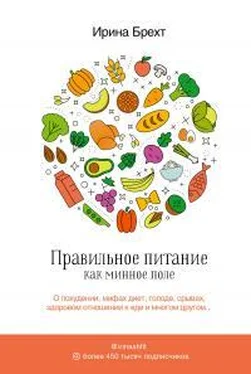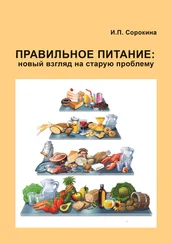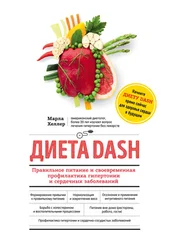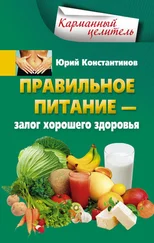44. Wolfram G. at al. Evidence-Based Guideline of the German Nutrition Society: Fat Intake and Prevention of Selected Nutrition-Related Diseases. Ann Nutr Metab. 2015; 67(3): 141–204.
45. De Souza RJ, Mente A, Maroleanu A, et al. Intake of saturated and trans unsaturated fatty acids and risk of all cause mortality, cardiovascular disease, and type 2 diabetes: systematic review and meta-analysis of observational studies. The BMJ. 2015;351:h3978. doi:10.1136/bmj.h3978.
46. Kozimor A, Chang H, Cooper JA. Effects of dietary fatty acid composition from a high fat meal on satiety. Appetite. 2013 Oct;69:39–45. doi: 10.1016/j.appet.2013.05.006.
Часть 2. Глава 9.
1. Food and Agriculture Organization of the United Nations, World Health Organization: Carbohydrates in Human Nutrition: Report of a Joint FAO/WHO Expert Consultation. Rome, Food and Agriculture Organization, 1998 (FAO Food and Nutrition Paper 66)
2. Scientific Advisory Committee on Health (SACN). Carbohydrates and Health. London, The Stationery Office; 2015.
3. Lemon PW, Mullin JP. Effect of initial muscle glycogen levels on protein catabolism during exercise. J Appl Physiol Respir Environ Exerc Physiol. 1980 Apr;48(4):624—9.
4. Nehme, P., Marqueze, E. C., Ulhoa, M., Moulatlet, E., Codarin, M. A., & Moreno, C. R. (2014). Effects of a carbohydrate enriched night meal on sleepiness and sleep duration in night workers: A double-blind intervention. Chronobiology International, 31, 453–460.
5. Fernstrom JD. Effects of the diet and other metabolic phenomena on brain tryptophan uptake and serotonin synthesis. Adv Exp Med Biol. 1991; 294: 369–376.
6. Holmes R. Carbohydrate digestion and absorption. Journal of Clinical Pathology Supplement (Royal College of Pathologists). 1971;5:10–13.
7. Berg JM, Tymoczko JL, Stryer L. Biochemistry. 5th edition. Chapter 21 Glycogen Metabolism. New York: W H Freeman; 2002.
8. Liu S. Intake of refined carbohydrates and whole grain foods in relation to risk of type 2 diabetes mellitus and coronary heart disease. J Am Coll Nutr 2002; 21:298.
9. Liu S, Willett WC, Manson JE, et al. Relation between changes in intakes of dietary fiber and grain products and changes in weight and development of obesity among middle-aged women. Am J Clin Nutr 2003; 78:920.
10. Ye EQ, Chacko SA, Chou EL, et al. Greater whole-grain intake is associated with lower risk of type 2 diabetes, cardiovascular disease, and weight gain. J Nutr 2012; 142:1304.
11. McKeown NM, Meigs JB, Liu S, et al. Whole-grain intake is favorably associated with metabolic risk.
12. Choo VL and Sievenpiper JL. The ecologic validity of fructose feeding trials: supraphysiological feeding of fructose in human trials requires careful consideration when drawing conclusions on cardiometabolic risk. Front Nutr. (2015) 6; 2: 12.
13. Sun SZ, Empie MW. Fructose metabolism in humans – what isotopic tracer studies tell us. Nutr Metab (Lond). 2012 Oct 2; 9(1): 89.
14. Salwa W Rizkalla. Health implications of fructose consumption: A review of recent data | Nutrition & Metabolism 2010, 7: 82.
15. McDevitt RM et. al. Macronutrient disposal during controlled overfeeding with glucose, fructose, sucrose, or fat in lean and obese women. Am J Clin Nutr. (2000) 72(2): 369–377.
16. Dolan LC, Potter SM, Burdock GA. Evidence-based review on the effect of normal dietary consumption of fructose on development of hyperlipidemia and obesity in healthy, normal weight individuals. Crit Rev Food Sci Nutr. 2010 Jan; 50(1): 53–84.
17. Kristensen, M. and M.G. Jensen, Dietary fibres in the regulation of appetite and food intake. Importance of viscosity. Appetite, 2011. 56(1): p. 65–70.
18. Howarth NC, Saltzman E, Roberts SB. Dietary fiber and weight regulation. Nutr Rev. 2001 May; 59(5):129–139.
19. Flood-Obbagy JE, Rolls BJ. The effect of fruit in different forms on energy intake and satiety at a meal. Appetite. 2009 Apr; 52(2): 416–422.
20. Heitmann BL, Lissner L, Osler M. Do we eat less fat, or just report so? Int J Obes Relat Metab Disord. 2000 Apr;24(4):435—42.
21. https://medium.com/@kevinnbass/the-data-do-not-support-the-idea-that-the-low-fat-dietary-guidelines-caused-the-obesity-epidemic-687e382894ed
22. Storlien LH, Higgins JA, Thomas TC, Brown MA, Wang HQ, Huang XF, Else PL: Diet composition and insulin action in animal models. Br J Nutr83 (Suppl. 1):S85—S90,2000
23. Black RNA, et al. Effect of eucaloric high- and low-sucrose diets with identical macronutrient profile on insulin resistance and vascular risk: a randomized controlled trial. Diabetes. 2006 Dec;55(12):3566—72.
24. Castan˜eda-González LM, Bacardí Gascón M, Jiménez Cruz A. Effects of low carbohydrate diets on weight and glycemic control among type 2 diabetes individuals: a systemic review of RCT greater than 12 weeks. Nutr Hosp. 2011 Nov-Dec;26(6):1270—6.
25. Hu T, et al. Effects of low-carbohydrate diets versus low-fat diets on metabolic risk factors: a meta-analysis of randomized controlled clinical trials. Am J Epidemiol. 2012 Oct 1;176 Suppl 7:S44—54.
26. Johnston BC, et al. Comparison of weight loss among named diet programs in overweight and obese adults: a meta-analysis. JAMA. 2014 Sep 3;312(9):923—33.
27. Lewis AS, McCourt HJ, Ennis CN, Bell PM, Courtney CH, McKinley MC, et al. Comparгаison of 5 % versus 15 % sucrose intakes as part of a eucaloric diet in overweight and obese subjects: effects on insulin sensitivity, glucose metabolism, vascular compliance, body composition and lipid profile. A randomised controlled trial. Metabolism. 2013 May;62(5):694–702.
28. Naude CE, et al. Low carbohydrate versus isoenergetic balanced diets for reducing weight and cardiovascular risk: a systematic review and meta-analysis. PLoS One. 2014 Jul 9;9(7):e100652.
29. Nordmann AJ, et al. Effects of low-carbohydrate vs low-fat diets on weight loss and cardiovascular risk factors: a meta-analysis of randomized controlled trials. Arch Intern Med. 2006 Feb 13;166(3):285—93.
30. Schwingshackl L, Hoffmann G. Comparison of effects of long-term low-fat vs high-fat diets on blood lipid levels in overweight or obese patients: a systematic review and meta-analysis. J Acad Nutr Diet. 2013 Dec;113(12):1640—61.
31. Surwit RS, et al. Metabolic and behavioral effects of a high-sucrose diet during weight loss. Am J Clin Nutr. 1997 Apr;65(4):908—15.
32. Hall KD et al. Energy expenditure and body composition changes after an isocaloric ketogenic diet in overweight and obese men. Am J Clin Nutr. 2016 Aug; 104(2): 324–333.
33. Te Morenga L, Mallard S, Mann J. Dietary sugars and body weight: systematic review and meta-analyses of randomised controlled trials and cohort studies. BMJ. 2012 Jan 15;346:e7492.
34. Murphy SP, Johnson RK: The scientific basis of recent US guidance on sugars intake. Am J Clin Nutr78:827S—833S,2003
35. Bray GA, Popkin BM. Dietary sugar and body weight: have we reached a crisis in the epidemic of obesity and diabetes?: health be damned! Pour on the sugar. Diabetes Care. 2014 Apr;37(4):950—6. doi: 10.2337/dc13—2085.
36. Malik VS, Pan A, Willett WC, Hu FB. Sugar-sweetened beverages and weight gain in children and adults: a systematic review and meta-analysis. Am. J. Clin. Nutr. 2013; 98(4):1084—1102
37. Blundell JE, Green S, Burley V. Carbohydrates and human appetite. Am J Clin Nutr. 1994 Mar;59(3 Suppl):728S-734S. doi: 10.1093/ajcn/59.3.728S.
38. Hopkins M et al. Differing effects of high-fat or high-carbohydrate meals on food hedonics in overweight and obese individuals. Br J Nutr. 2016 May 28;115(10):1875—84. doi: 10.1017/S0007114516000775.
39. ADAM DREWNOWSKI et al. Food Preferences in Human Obesity: Carbohydrates Versus Fats. Appetite, 1992, 18, 207—221
Читать дальше
Конец ознакомительного отрывка
Купить книгу












